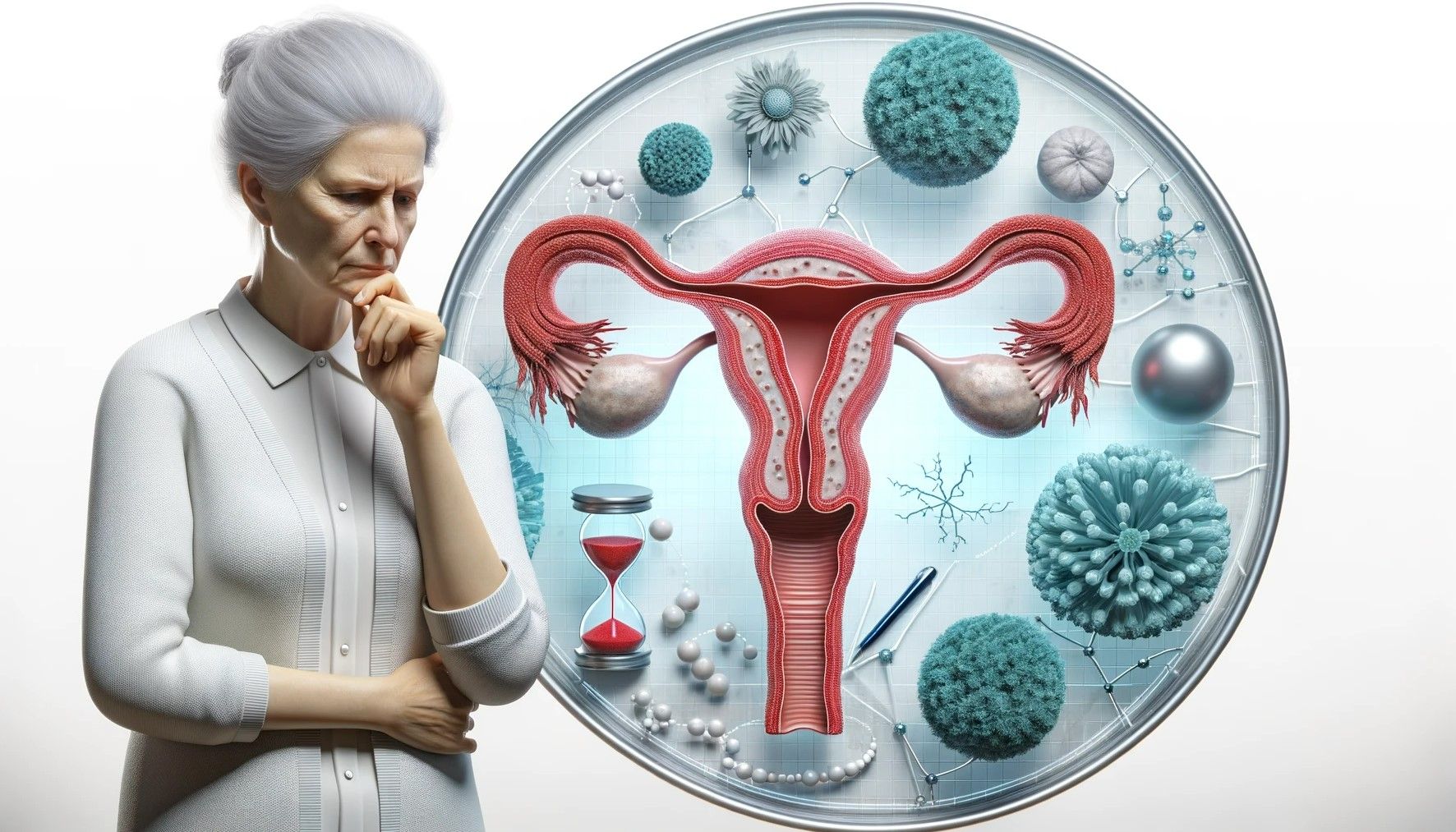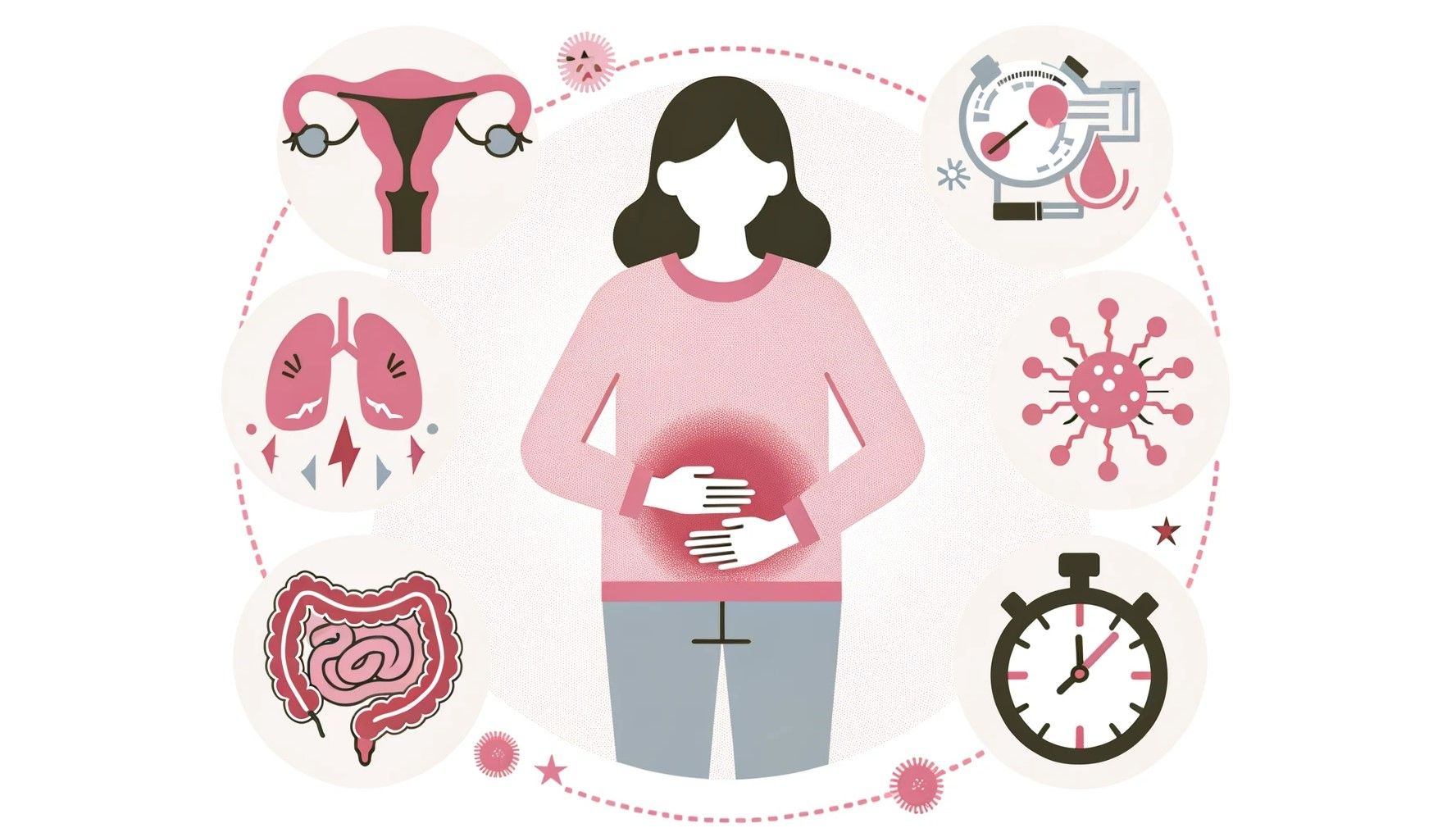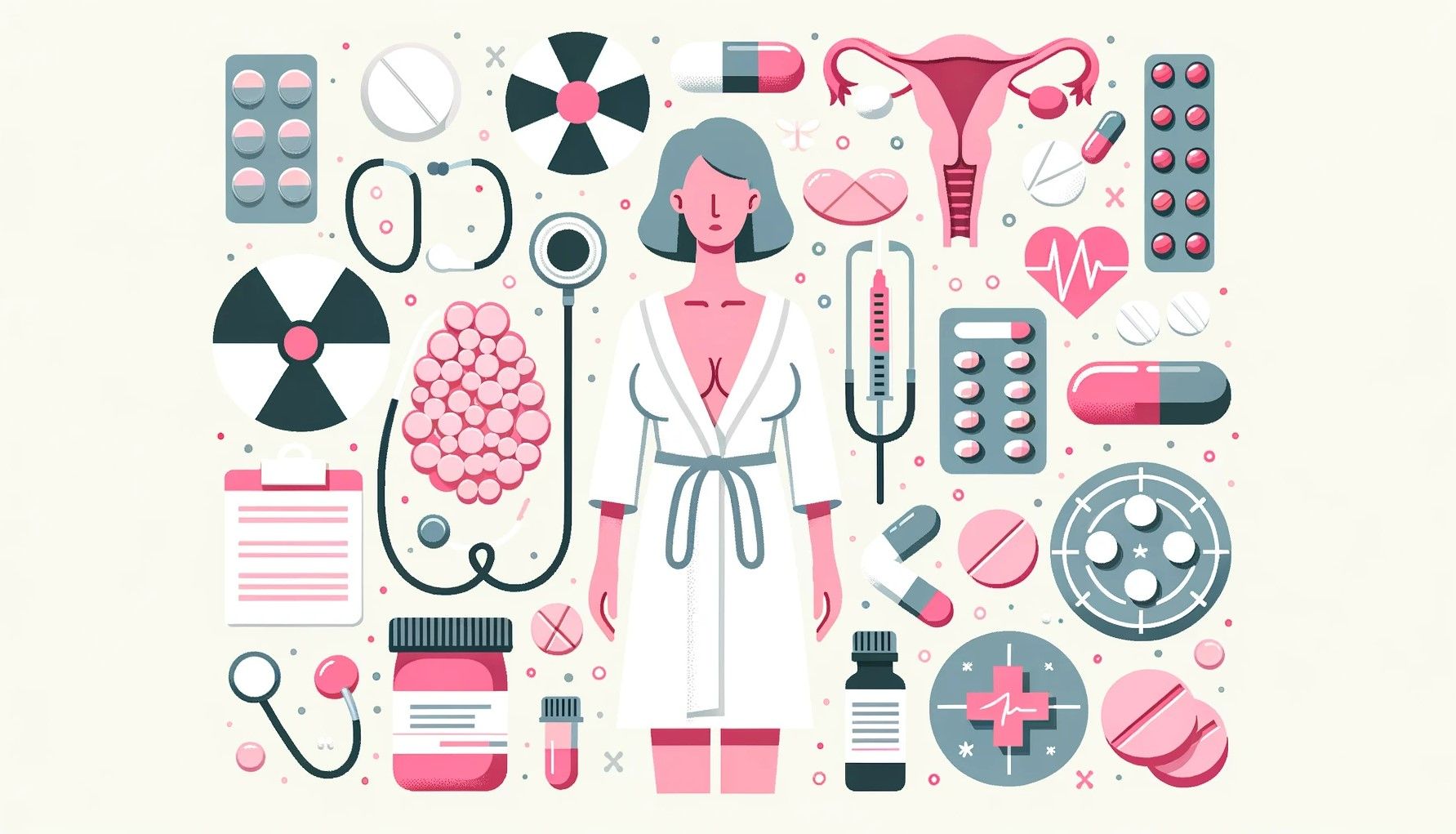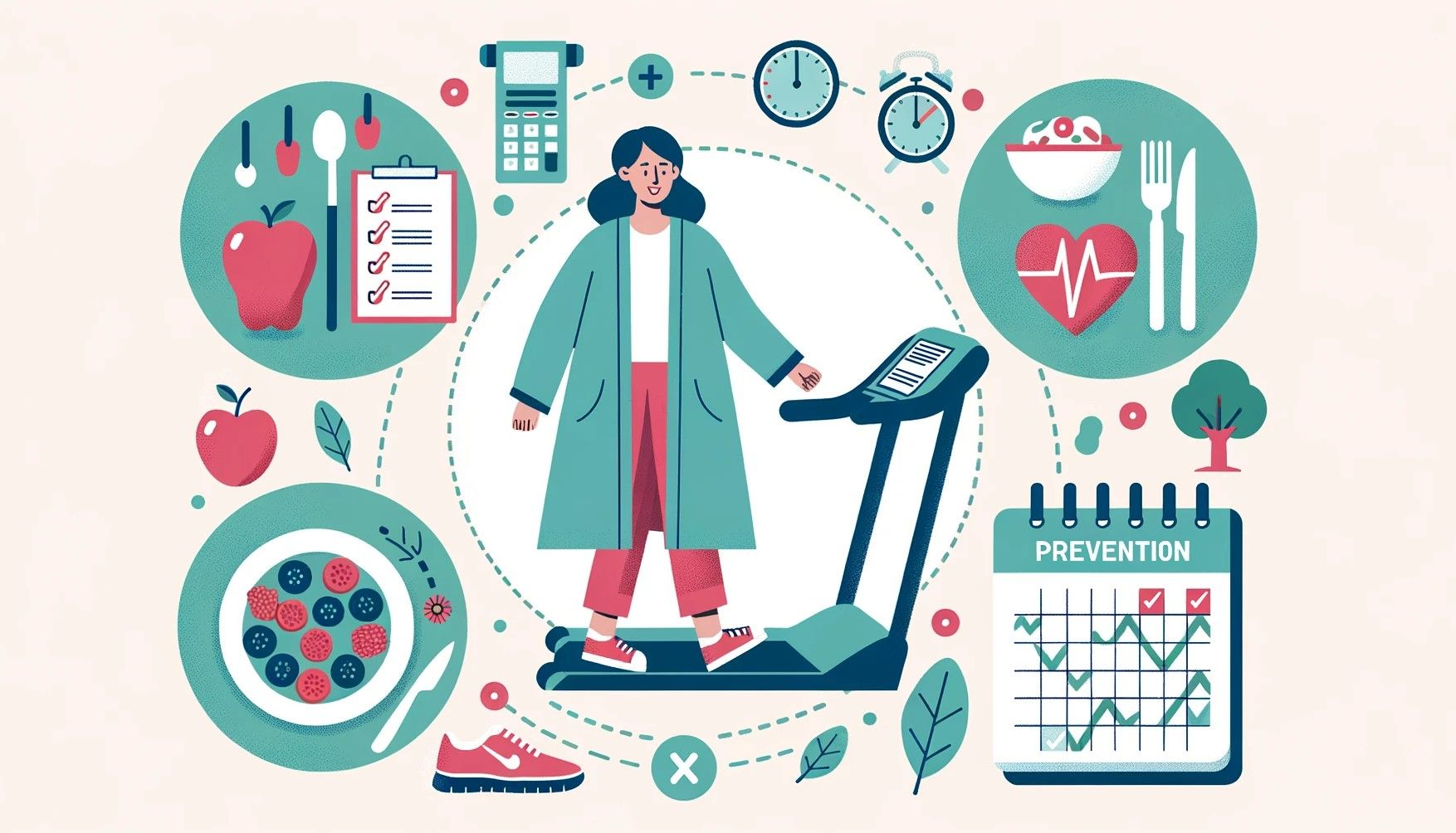Ovarian cancer begins in the fallopian tube. Later, it spreads to other parts of the body. Ovarian cancer is very common in women over 50 years of age. In fact, half of all cases are found in women 63 and older.
Now one thing we need to understand: getting ovarian cancer after menopause has high chances. However, ovarian cancer isn't caused by menopause. The risk of ovarian cancer after menopause is high because of your age.
Getting menopause at the age of 52 or above can increase the risk of ovarian cancer. This is because the later you get menopause, the more you’ve ovulated. The release of eggs for longer may cause ovarian cancer after menopause.

Taking birth control pills can temporarily stop ovulation. This may lower the risk of ovarian cancer.
Some women take hormone therapy to manage menopause symptoms. However, sometimes taking hormone therapy may increase your risk of ovarian cancer. Hormone therapy usually involves taking estrogen alone or a combination of estrogen and progesterone.
According to the American Cancer Society, the risk appears to be higher when taking estrogen alone. It appears after 5 to 10 years of taking hormone therapy. It can lead to ovarian cancer after menopause.
In simpler terms, ovarian cancer doesn't happen because of menopause. As you grow older, the risk goes up. Starting menopause at a later age, birth control medications, or hormone therapy can increase your risk.
Feeling scared? There's no need. We've thoroughly explored every aspect of ovarian cancer after menopause. Read ahead.
Take the first step toward healing. Request a Free Consultation.
Now, let's talk about how frequently ovarian cancer occurs after menopause.
How common is ovarian cancer after menopause?
Ovarian cancer is most commonly seen in women who have already gone through menopause. Women of all ages can get cancer. However, ovarian cancer is rare in women who are younger than 40 years. Ovarian cancer accounts for 3% of cancers in women. Every 3 out of 100 women gets ovarian cancer.
The majority of ovarian cancer cases that occur after menopause are between the ages of 60 to 64. Around 90% of ovarian cancer cases occur in women over the age of 45, and 80% in women over 50. The worldwide incidence peaks in the early postmenopausal period, around the ages of 55 to 64.
Recognizing the signs of ovarian cancer after menopause is crucial. Read on!
What are the symptoms of ovarian cancer after menopause?
Ovarian cancer is also known as a silent disease, as the symptoms are not very obvious. The symptoms of ovarian cancer after menopause can be easily mistaken for other, less serious health issues.
To understand the symptoms of ovarian cancer after menopause, pay attention to these signs:
- Feeling full quickly or having stomach discomfort.
- Experiencing unexplained bloating.
- Spotting or having heavier vaginal bleeding even after menopause

- Need to use the bathroom more often and urgently.
- Feeling pain or pressure in your pelvis.
- Having unexplained back pain.
- Losing weight unintentionally.
Keep track of these symptoms. If they last for more than 2 weeks, talk to your doctor immediately.
Did you notice any such symptoms?
Don't delay— schedule your appointment today and get checked promptly! Early intervention and treatment
What puts some women at higher risk for ovarian cancer in their post-menopausal years? Let’s explore!
What are the risk factors for developing ovarian cancer after menopause?
There are several risk factors for developing ovarian cancer after menopause:
- Age: It's more common in older women, especially those over 63.
- Family History: A strong family history of ovarian, breast, or certain other cancers
- Inherited gene mutations, such as BRCA1 and BRCA2.
- Personal History of Cancer: Especially breast, colorectal, or uterine cancer.
- Endometriosis: A history of this condition
- Hormone Replacement Therapy (HRT): Long-term estrogen-only HRT may slightly increase the risk.
- Obesity: Being overweight or obese.
- Reproductive Factors: Never giving birth or having children later in life
Having these factors doesn't guarantee ovarian cancer after menopause. There are also many ovarian cancer cases that occur without any known risk factors.
Discover the methods used to combat ovarian cancer after menopause. Continue reading!
How is ovarian cancer treated after menopause?
After menopause, ovarian cancer is treated similarly to how it is treated in premenopausal women. Although there might be some differences based on the individual's overall health and other factors,
The treatment options available are:
- Surgery: Your doctor may remove both ovaries and fallopian tubes. As a result, you will have early menopause. This is called surgical menopause. This gives rise to sudden symptoms. Early menopause, however, can lead to other problems like heart disease, dementia, stroke, sexual dysfunction, Parkinson's disease, mood problems, and bone loss.

- Radiation therapy: It uses radiation to damage cancer cells. It may affect your ovaries. This causes menopause based on factors like your age and radiation dose.
- Chemotherapy: This treatment can induce early menopause and reduce fertility. Certain drugs, like alkylating agents, are highly toxic to the ovaries and are used during chemotherapy.
- Hormone Therapy: Though less common, it may be used to stop estrogen production. This causes menopause symptoms. Medications like LHRH agonists, tamoxifen, and aromatize inhibitors can trigger this.
Book your appointment today for the best treatment for your unique situation.
Prevention is key, and here are some steps you can take to reduce the risk.
How can you prevent ovarian cancer after menopause?
Here are certain things you can do to prevent the chances of ovarian cancer after menopause:’
- Maintaining a Healthy Weight: Being overweight may increase the risk.
- Hormone Replacement Therapy (HRT): Using estrogen or estrogen plus progesterone after menopause might raise the risk. Try to avoid it.
- Birth Control Pills: Taking them for at least five years can reduce the risk by about 50 percent. But they may slightly increase the risk of breast cancer. Consult with your gynecologist first before taking any such medicines.

- Tubal Ligation and Hysterectomy: These procedures may lower the risk of certain ovarian cancers. However, they're not recommended solely for this purpose.
There can be a risk of ovarian cancer after menopause due to family history or gene mutations like BRCA. For those, options include genetic testing, prophylactic surgery (removing ovaries and fallopian tubes), or regular screening.
What are the chances of survival when facing ovarian cancer after menopause? Discover below!
What is the survival rate for ovarian cancer after menopause?
According to the National Cancer Institute, the survival rates for women with cancer can significantly differ based on their age over a five-year period. Women under 50 have a survival rate of 72.8%, while women between 50 and 64 have a survival rate of 54.7%. For women over 64, the survival rate drops to 34%.






